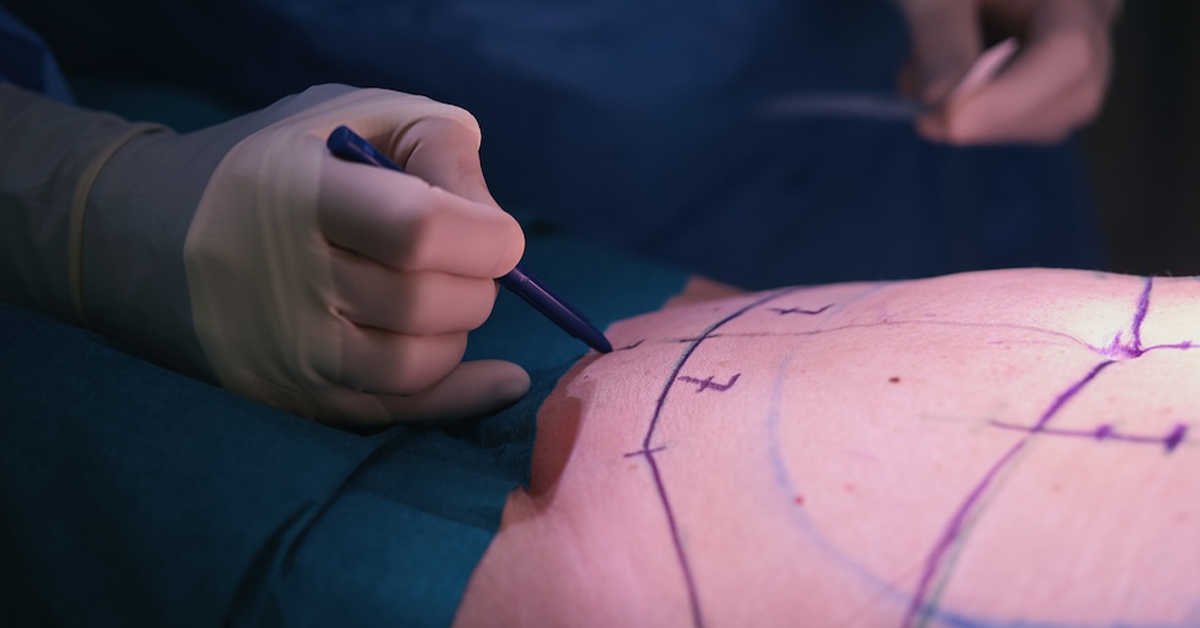Botched Liposuction: Get Informed and Avoid Surgery Mishaps
Liposuction is a popular cosmetic procedure that aims to remove excess fat from specific areas of the body to achieve a more contoured appearance. However, like any surgery, liposuction carries risks and complications. Infections, scarring, swelling, and uneven results can occur after liposuction, leading to patient dissatisfaction. It is important for patients to understand these risks and be able to identify signs of botched liposuction. This knowledge can help them make informed decisions, choose qualified surgeons, and take appropriate actions if complications arise.
Risks and Complications of Liposuction
Lipo is generally considered a safe procedure when performed by skilled surgeons. However, like any surgical intervention, there are potential risks and complications to be aware of. It is crucial for individuals considering liposuction to have a comprehensive understanding of these potential issues in order to make informed decisions about their cosmetic goals.
Some common complications associated with liposuction include infections and scarring. While infections are rare, they can be severe if they occur. It is important for patients to closely monitor any signs of infection, such as increased pain, redness, or discharge at the surgical site. Scarring is another possible complication, and while the extent of scarring varies from person to person, proper wound care and following post-operative instructions can help minimize its appearance.
Other potential complications include swelling, numbness, and changes in sensation. It is not uncommon for patients to experience swelling after lipo, but excessive swelling should be closely monitored as it could be a sign of a more serious issue. Numbness and changes in sensation are also common and typically resolve over time, but patients should report any persistent or worsening symptoms to their surgeon.
| Complication | Description |
|---|---|
| Infections | Rare but severe, can lead to increased pain, redness, and discharge at the surgical site. |
| Scarring | Possible outcome, extent varies from person to person. Proper wound care can help minimize appearance. |
| Swelling | Common after liposuction, excessive swelling should be closely monitored. |
| Numbness and changes in sensation | Typically resolve over time, but persistent or worsening symptoms should be reported to the surgeon. |
Finally, uneven or lumpy results, often referred to as botched liposuction, can occur if fat removal is not performed evenly. This is why it is crucial to choose a skilled and experienced surgeon who understands the proper techniques for achieving smooth and proportionate results. Patients should thoroughly research and select a board-certified surgeon with ample experience in liposuction procedures.
Signs of Botched Liposuction and When to Seek Help
After undergoing a liposuction procedure, it’s important to monitor your body for any signs of complications. Recognizing these signs early on can help you seek appropriate help and prevent further issues. Here are some key indicators that you may have experienced a botched liposuction:
1. Excessive Pain
If you are experiencing intense or prolonged pain after liposuction, it could be a sign of a problem. While some discomfort is expected during the recovery process, excessive or worsening pain may indicate complications such as infection or nerve damage. It’s crucial to report this to your surgeon immediately.
2. Changes in Skin Color
Any significant changes in the color of your skin, such as redness, bruising, or darkening, should be carefully monitored. These changes may be a result of poor blood circulation or tissue damage. Keep your surgeon informed about these observations so they can assess the situation.
3. Severe Swelling
Swelling is a normal part of the recovery process following liposuction. However, if you notice excessive swelling that does not subside over time or is accompanied by intense pain, it could be a sign of a complication. This may require immediate medical attention to prevent further issues.
4. Severe Skin Indentation
If you notice deep or irregular skin indentations in the treated area, it may suggest that the liposuction procedure was not performed evenly or that there was excessive fat removal. These indentations can cause an asymmetrical appearance and decrease your overall satisfaction with the results. Contact your surgeon to discuss possible solutions.
5. Loose or Saggy Skin
While liposuction removes excess fat, it does not address loose or sagging skin. However, if you notice a significant worsening of skin laxity in the treated area, it could indicate that the procedure was not performed correctly. Your surgeon can evaluate the situation and recommend appropriate treatments, such as skin tightening procedures or revision liposuction.
Remember, everyone’s healing process is unique, and it’s normal to experience some swelling, bruising, and discomfort after liposuction. However, if you observe any of the signs mentioned above, it is crucial to contact your surgeon promptly. They will be able to assess your condition, provide guidance, and take appropriate action if necessary. Your well-being and satisfaction with the procedure are of utmost importance.
Preventing Botched Liposuction: Choosing the Right Surgeon and Managing Expectations
When it comes to liposuction, one of the most crucial steps in ensuring a successful and satisfying outcome is choosing the right surgeon. Qualified surgeons with experience in performing liposuction procedures can greatly minimize the risk of complications and increase the chances of achieving the desired results. It is essential to select a board-certified surgeon who has demonstrated expertise in liposuction, including revision procedures if needed.
Board certification is an important indicator of a surgeon’s qualifications and commitment to upholding high standards of patient care. When researching potential surgeons, be sure to verify their credentials and inquire about their experience specifically in liposuction. Look for surgeons who have a proven track record of successful procedures and satisfied patients.
Additionally, it is crucial to manage your expectations when considering liposuction. While the procedure can effectively remove unwanted fat and enhance body contours, it is not a substitute for weight loss or a solution for underlying medical conditions. Realistic expectations are essential to avoid disappointment and ensure that the desired outcome aligns with what can be realistically achieved through liposuction.
Choosing a Qualified Surgeon
When selecting a surgeon, consider these key factors:
-
Board certification: Ensure that the surgeon is board-certified in plastic surgery or a related field, demonstrating their expertise in cosmetic procedures.
-
Experience: Inquire about the number of liposuction procedures the surgeon has performed and their success rate. Surgeons with extensive experience are more likely to deliver optimal results.
-
Patient testimonials: Read reviews and testimonials from previous patients to gain insights into their experiences and satisfaction with the surgeon’s work.
-
Before and after photos: Review the surgeon’s before and after photos to assess the quality and consistency of their results. This can help you visualize the potential outcomes of your own procedure.
Choosing a qualified and experienced surgeon is the foundation of a successful liposuction procedure. By thoroughly researching and considering the factors mentioned above, you can make an informed decision that prioritizes your safety and aesthetic goals.
Managing Expectations
Open and honest communication with your surgeon is crucial in managing expectations. During your consultation, discuss your aesthetic goals, realistic outcomes, and any concerns you may have. Your surgeon can provide valuable insights and help you understand what is achievable based on your unique body structure and characteristics.
Remember, lipo is a highly individualized procedure, and results may vary from person to person. Your surgeon will guide you through the process, ensuring that you have a comprehensive understanding of the procedure, recovery, and expected outcomes. By setting realistic expectations, you can approach the procedure with confidence and increase the likelihood of a satisfying outcome.
Key Considerations for Choosing a Surgeon
| Consideration | Importance |
|---|---|
| Board certification | Essential |
| Experience in liposuction | Highly important |
| Patient testimonials | Helpful in assessing satisfaction |
| Before and after photos | Visual representation of results |
Choosing a qualified surgeon and managing your expectations are pivotal in preventing botched liposuction and ensuring a successful outcome. By making informed decisions and maintaining open communication with your surgeon, you can embark on your liposuction journey with confidence and increase the likelihood of achieving your aesthetic goals.
What to Do If You Suspect Botched Liposuction
Immediate action is crucial if you suspect complications after a liposuction procedure. Here are some steps you can take to address your concerns and ensure proper care:
-
Contact your surgeon:
If you notice any signs of botched liposuction, such as excessive pain, severe swelling, or changes in skin color, it is important to contact your surgeon immediately. They can provide guidance and advice on the next steps to take.
-
Seek a second opinion:
If you are not satisfied with your surgeon’s response or diagnosis, it may be beneficial to seek a second opinion from another qualified surgeon. They can evaluate your situation independently and provide additional insights and recommendations.
-
Document your symptoms:
Keeping a detailed record of your symptoms is essential for proper documentation. Take note of any changes, pain levels, swelling progression, and other relevant information. Additionally, consider taking photographs of any visible complications for further documentation purposes.
-
Consider legal action:
In cases of severe negligence and unsatisfactory outcomes, you may want to consider consulting with a lawyer experienced in medical malpractice cases. They can assess the situation, provide legal advice, and guide you through the process if pursuing legal action is appropriate.
Remember, taking prompt action and seeking proper medical attention are key to addressing complications and ensuring your well-being after liposuction. Be proactive in advocating for your health and don’t hesitate to reach out to medical professionals for assistance.
Steps to Take If You Suspect Botched Liposuction
| Steps | Actions |
|---|---|
| Contact your surgeon | Reach out to your surgeon immediately to discuss your concerns and seek guidance on the next steps. |
| Seek a second opinion | If you are not satisfied with your surgeon’s response or diagnosis, consider consulting another qualified surgeon for an independent evaluation. |
| Document your symptoms | Keep a detailed record of your symptoms, including pain levels, swelling progression, and any visible complications. Consider taking photographs for documentation purposes. |
| Consider legal action | If you believe there has been severe negligence and unsatisfactory outcomes, consult with a lawyer experienced in medical malpractice cases to explore potential legal remedies. |
Conclusion
In conclusion, achieving successful liposuction and patient satisfaction requires careful consideration and proactive steps. By being informed about the risks and complications associated with lipo, you can make educated decisions about your cosmetic goals. Remember to select a qualified surgeon who is board-certified and experienced in performing liposuction procedures, including revision liposuction if necessary.
Managing your expectations is also crucial. liposuction is not a substitute for overall weight loss, but it can help contour specific areas of your body. Discuss your desired results with your surgeon to ensure they align with what can be realistically achieved.
Should you encounter any signs of botched liposuction, it is important to take immediate action. Contact your surgeon right away to discuss any concerns and seek their guidance. If you are dissatisfied with your surgeon’s response, seeking a second opinion from another qualified professional may provide valuable insights.
By prioritizing your safety, staying informed, and making informed decisions, you can significantly reduce the risk of botched liposuction and increase the likelihood of achieving your desired aesthetic results. Remember, your satisfaction and well-being are of utmost importance.
Liposuction in Miami, FL
Liposuction is a surgical procedure that can help you attain the body shape you desire. If you are interested in learning more, call us now at (305) 406-9055 or schedule a consultation online Now.







